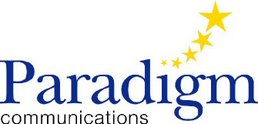As you may know, various studies highlight the growing dissatisfaction among corporations worldwide with the skills business schools are teaching to MBA students. For example, according to surveys conducted a few years ago by The Association of Graduate Recruiters (in the UK), employers continue to seek – and continue to find scarce – the personal skills that will make MBA graduates valuable employees. These surveys go on to point out that what employers seek most from new graduates are enthusiasm, self-motivation, interpersonal skills, team-working, and good oral communication – and that these skills are more important than specialist knowledge.
Earlier this year, Northeastern University’s College of Business Administration formally announced an overhaul of its full-time MBA program. The news here is that the school is focusing on working and partnering with the businesses that hire their MBAs in ways that most business schools do not. Moreover, a central tenant of this transformed MBA is a heightened focus on developing these personal skills through a unique combination of skills assessment and implementation of a personal development portfolio.
“Personal assessment is all the rage at business schools right now,” says Brendan Bannister, professor and head of the human resources group at the College of Business Administration at Northeastern University. Prof. Bannister was also in charge of the skills design team that spent two years planning the changes at Northeastern. “While things like our online personal development portfolio or learning teams are not unique in and of themselves, no other MBA program offers the combination of components aimed at both identifying and improving these critical personal skills.”
To show that this is happening on a national scale, I thought I would highlight what other MBA programs are doing in this area:
Tuck (Dartmouth College): utilize 3600 assessments, one on one coaching, study groups, career counseling, internship; strong focus on leadership potential and development
Wharton (University of Pennsylvania): heavy focus on Learning Teams including use of peer coaches
UChicago: heavy focus on Learning Teams including use of peer coaches
UVA Darden: use Learning Teams including peer coaches; second year peer coaches take a ‘How to Coach’ 3 credit elective while they provide facilitation/coaching to the Learning Teams
UCBerkley: utilize 3600 assessments and personal development planning
Last year, Northeastern University College of Business Administration (CBA) conducted over two-dozen in-depth interviews with Global 500 companies. “We had to push them to go beyond the platitudes, and to tell us what they really wanted, and where business schools were failing them,” said Thomas Moore, dean of CBA. “Very few universities take the time to identify corporate partners and work with them to understand exactly what skills-sets they want in the MBAs they hire. Based on corporate feedback, students will supplement a rigorous MBA curriculum with management intensives and skills modules to develop abilities in communications, interpersonal effectiveness, project management, and ethics.”
After talking with their corporate partners, the most frequently cited skills of effective managers (and leaders) were as follows:
Verbal communication
Managing time and stress
Managing individual decisions
Dealing with complexity and ambiguity
Project Management
Business Analysis
Recognizing, defining and solving problems
Motivating and influencing others
Delegating
Setting goals and articulating a vision
Self-awareness
Team building
Managing conflict
Leading positive change
To identify, assess and strengthen these skills sets of their students, CBA has created a skills program that goes across all the students’ course work, consisting of four key components:
1. Skills intensives
2. Learning teams, led by corporate coaches
3. Personal development portfolios
4. Corporate residencies
If you’d like to talk with the Dean, current students, or corporate partners of CBA about this unique approach to personal skills development, I’d be happy to facilitate an interview.





